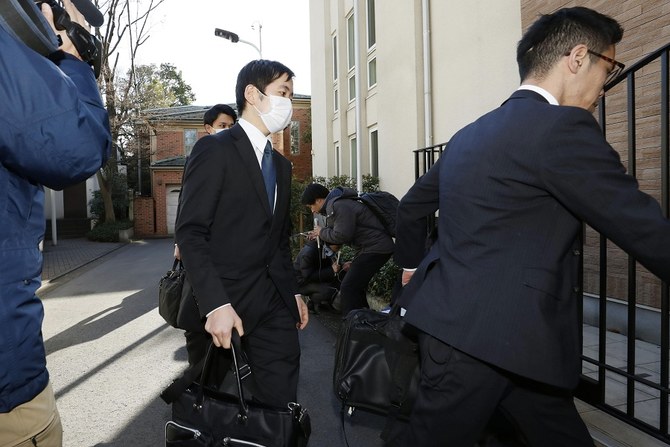TOKYO: Japanese prosecutors raided the Tokyo home of former Nissan Chairman Carlos Ghosn after he skipped bail before a trial on financial misconduct charges and left for Lebanon.
Tokyo prosecutors and police did not immediately comment Thursday. Japanese media reported and showed photos of the raid.
Government offices are closed this week for the New Year’s holidays.
In Turkey, police have detained seven people – four pilots, a cargo company manager and two airport workers – after the interior ministry launched a probe into the transit of ousted Nissan boss Carlos Ghosn, who after fleeing Japan stopped in Turkey on his way to Lebanon, broadcaster NTV said on Thursday.
Local Turkish media Hurriyet reported the plane arrived at 5:30 a.m. (02:30 GMT) at Istanbul’s Ataturk Airport, citing an interior ministry official, who also said Turkish border police were not notified about Ghosn's arrival, and neither his entry nor exit were registered.
Meanwhile in France, junior economy minister Agnes Pannier-Runacher said the state ‘will not extradite’ Ghosn if he arrives in the country.
Arab News Japan sources revealed there was no meeting with the Lebanese president - a detail confirmed on Thursday.
"If Mr Ghosn arrived in France, we will not extradite Mr Ghosn because France never extradites its nationals," Pannier-Runacher told France's BFM news channel.
It is unclear how Ghosn avoided the tight surveillance he was under in Japan and showed up in Lebanon.
Ghosn said Tuesday in a statement that he left for Lebanon because he thought the Japanese judicial system was unjust, and he wanted to avoid “political persecution.”
He said he would talk to reporters next week.
Japan does not have an extradition treaty with Lebanon.
Lebanon has said Ghosn entered the country legally, and there was no reason to take action against him.
His lawyers in Japan said they had no knowledge of the escape and they had all his passports. Ghosn has French, Lebanese and Brazilian citizenship.
Japanese public broadcaster NHK TV, without identifying sources, reported Thursday that Ghosn had two French passports.
Earlier Japanese reports said there were no official records in Japan of Ghosn’s departure, but a private jet had left from a regional airport to Turkey.
Ghosn, who was charged with under-reporting his future compensation and breach of trust, has repeatedly asserted his innocence, saying authorities trumped up charges to prevent a possible fuller merger between Nissan Motor Co. and alliance partner Renault SA.
His 1.5 billion yen ($14 million) bail that Ghosn posted on two separate instances to get out of detention is being revoked.



























